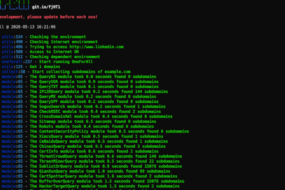
In today’s digital age, where data is increasingly becoming the lifeblood of businesses, ensuring its security and integrity is paramount. Traditional database management systems have long been the backbone of storing and managing data, but they come with their own set of vulnerabilities. Enter blockchain technology, a decentralized and immutable ledger system that holds the promise of revolutionizing database management by providing enhanced security, transparency, and decentralization. In this comprehensive guide, we’ll delve into the intricacies of blockchain integration in database management and how it can bolster data security in an increasingly interconnected world.
Understanding Blockchain Technology
Decentralized Ledger System
Blockchain technology operates on a decentralized ledger system, where data is stored across a network of computers (nodes) rather than in a central authority. Each block in the chain contains a cryptographic hash of the previous block, creating a secure and immutable record of transactions.
Immutable Record Keeping
One of the key features of blockchain is its immutability. Once data is recorded on the blockchain, it cannot be altered or tampered with, providing a high level of data integrity and security.
Smart Contracts
Smart contracts are self-executing contracts with the terms of the agreement directly written into code. They automate and enforce the execution of agreements, eliminating the need for intermediaries and reducing the risk of fraud.
Blockchain Integration in Database Management
Enhanced Security
By integrating blockchain technology into database management systems, organizations can significantly enhance the security of their data. Blockchain’s cryptographic algorithms and decentralized architecture make it highly resistant to hacking and tampering, reducing the risk of data breaches and unauthorized access.
Transparency and Traceability
Blockchain provides a transparent and auditable record of data transactions, allowing for greater traceability and accountability. Every transaction recorded on the blockchain is visible to all participants in the network, fostering trust and transparency in data management processes.
Decentralization
Traditional database management systems rely on a central authority to manage and verify transactions, making them vulnerable to single points of failure and potential security breaches. Blockchain’s decentralized nature eliminates the need for a central authority, distributing control and verification across the network of nodes.
Data Immutability
The immutability of blockchain ensures that once data is recorded, it cannot be altered or deleted without consensus from the network. This feature is particularly valuable in industries where data integrity is critical, such as supply chain management, healthcare, and financial services.
Key Considerations for Blockchain Integration
Scalability
While blockchain technology offers significant advantages in terms of security and transparency, scalability remains a challenge. As the volume of transactions increases, blockchain networks may face issues with latency and throughput. Scalability solutions such as sharding and layer 2 protocols are being developed to address these challenges.
Interoperability
Interoperability between different blockchain networks and existing database management systems is essential for widespread adoption. Standards and protocols for data exchange and communication between disparate systems need to be established to ensure seamless integration.
Regulatory Compliance
Regulatory compliance is another key consideration for blockchain integration in database management. Depending on the industry and jurisdiction, organizations may need to comply with data protection regulations such as GDPR, HIPAA, or PCI DSS. Implementing blockchain solutions that meet regulatory requirements is crucial to avoid legal and financial repercussions.
Cost and Complexity
Implementing blockchain technology involves significant upfront costs and complexity, including infrastructure setup, integration with existing systems, and ongoing maintenance. Organizations need to carefully evaluate the cost-benefit ratio and assess the long-term impact on their operations before embarking on blockchain integration projects.
Future Outlook and Adoption Trends
Blockchain integration in database management is still in its nascent stages, but the potential benefits are driving increased adoption across various industries. As technology continues to evolve and mature, we can expect to see greater interoperability, scalability, and regulatory compliance in blockchain solutions.
Final Words
In conclusion, blockchain integration holds immense promise for enhancing data security and integrity in database management systems. By leveraging decentralized ledger technology, organizations can mitigate the risks associated with centralized databases and ensure trust, transparency, and immutability in their data transactions.
Commonly Asked Questions
1. How does blockchain technology ensure data security in database management?
Blockchain technology employs cryptographic algorithms and a decentralized ledger system to enhance data security. Each transaction recorded on the blockchain is encrypted and immutable, making it highly resistant to hacking and tampering.
2. What are the key challenges of integrating blockchain into database management systems?
Scalability, interoperability, regulatory compliance, and cost are among the key challenges of integrating blockchain into database management systems. Organizations need to carefully evaluate these factors before embarking on blockchain integration projects.
3. What industries can benefit the most from blockchain integration in database management?
Industries such as finance, healthcare, supply chain management, and government sectors can benefit the most from blockchain integration in database management. These industries deal with sensitive data and require high levels of security, transparency, and traceability.
4. How does blockchain technology ensure data immutability?
Blockchain technology ensures data immutability by using cryptographic hashing and consensus mechanisms. Once data is recorded on the blockchain, it cannot be altered or deleted without consensus from the network, ensuring the integrity and immutability of the data.
5. What are some scalability solutions for blockchain integration?
Scalability solutions such as sharding, layer 2 protocols, and off-chain scaling solutions are being developed to address the scalability challenges of blockchain integration. These solutions aim to improve transaction throughput and reduce latency on blockchain networks.
Advertisement








